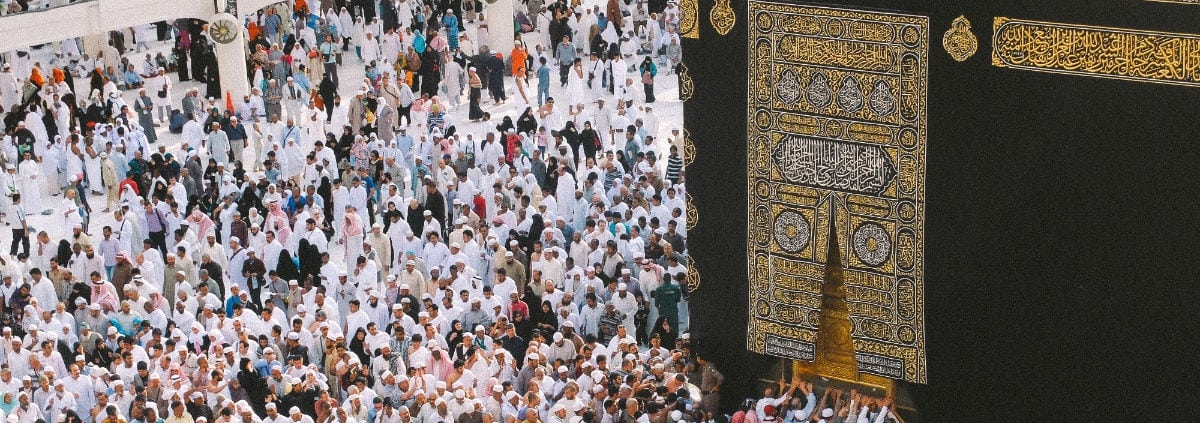Is the ‘Umra and Hajj of a Women Valid If She Has Doubts about Her Menstruation?
Hanafi Fiqh
Answered by Shaykh Abdul-Rahim Reasat
Question
In the Hanafi school, if a menstruating woman goes to perform an ‘umra or Hajj, waits for her menses to stop, and then performs the tawaf of the ‘umra or Hajj, after her tawaf two days later, she sees blood again within ten days. Is her Tawaf of the ‘umra or Hajj valid?
What can she do, If her menses do not stop and she has to leave and is still in Ihram?
Answer
In the Name of Allah, Most Compassionate, Most Merciful
Rectifying an Invalid Tawaf
If the bleeding resumes within ten days of the start of her menstrual cycle after she thought it had ended, the tawaf will not be valid. To rectify this, she has to perform another tawaf after the cycle ends, which will automatically compensate for the previous invalid one.
Leaving Mecca Without Performing an Obligatory Tawaf
Things get complicated if she has to leave Mecca while still in ihram or without performing the tawaf al-ziyara for the Hajj. She would have to make sacrifices that vary depending on the situation.
For the ‘umra she would have to have a sheep sacrificed for not performing the ‘umra, and one for leaving the ihram, and would have to make an ‘umra up. She could do the Hajj at any time in the future. It would compensate for the deficiency in the Hajj, but she would have to sacrifice a sheep for this. [Maydani, al-Lubab]
An easy, practical solution possible for most people is to come back to Mecca. Many people go to Medina after Mecca. All she has to do is get a mahram, get into a taxi, go to Mecca, and perform the tawaf.
This might take a full day and be tiring, but it will allow her to discharge her obligation correctly. I have found that this is a workable solution for most people.
May Allah grant you the best of both worlds.
[Shaykh] Abdul-Rahim Reasat
Checked and Approved by Shaykh Faraz Rabbani
Shaykh Abdul-Rahim Reasat began his studies in Arabic Grammar and Morphology in 2005. After graduating with a degree in English and History he moved to Damascus in 2007 where, for 18 months, he studied with many erudite scholars. In late 2008 he moved to Amman, Jordan, where he continued his studies for the next six years in Sacred Law (fiqh), legal theory (Usul al-fiqh), theology, hadith methodology, hadith commentary, and Logic. He was also given licenses of mastery in the science of Quranic recital and he was able to study an extensive curriculum of Quranic sciences, tafsir, Arabic grammar, and Arabic eloquence.
